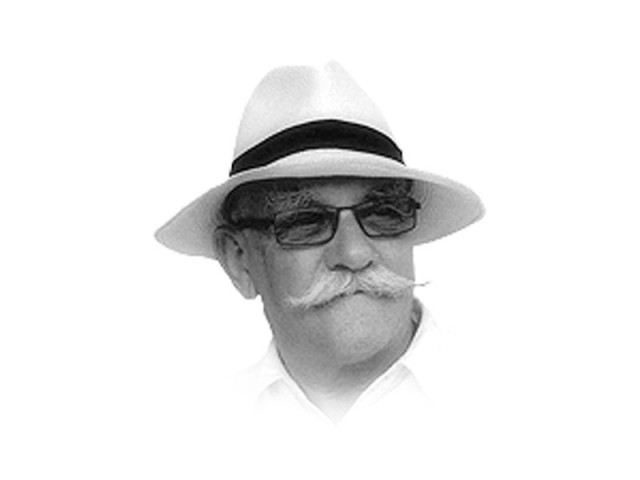The human condition
What has not changed is our capacity to inflict suffering, one upon the other on scale that transcends comprehension.

The writer is editorial consultant at The Express Tribune, news junkie, bibliophile, cat lover and occasional cyclist
Nobody spoke in the group I was with. We were stunned into silence at the reality of what had previously been a history lesson. I stood before a pile of human hair higher than myself. It was used to fill mattresses. Some people wept.
There was a cafe and we sat with the woman who had guided us around the site. She did this for a job, she said, because there was very little work in the area. She was glad to be able to earn a living. “How do you do it?” I asked. She smiled and shrugged and said that after a while, you just don’t notice.
You just don’t notice. I had stopped noticing Syria, as had many others, until January 21. It is a country I know well, having cycled over much of it. I recently dug out some of my old travel diaries with a view to editing them into book form. There were happy memories of Syria with only the very occasional flash of awareness that there was a sleeping beast there. Today, it is wide awake and ripping the country, literally limb from limb.
It was the release of a report that detailed the killing by assorted means of up to 11,000 Syrians that sparked the Auschwitz memory and gave rise to these words. The report had its foundation in a collection of 55,000 images of bodies, many of them emaciated from prolonged starvation, missing eyes, scarred with huge parallel welts made by beatings, genitals mutilated, legs and feet ulcerated and signs of strangulation on necks — all made by a man whose job it was to document each body. That was his job. He was to photograph each individual so that a death certificate could be issued. In the end, he defected and brought his picture gallery with him.
It was that compulsion to record that was the umbilical linking Syria and Auschwitz. The Nazis were meticulous in their record keeping. Prisoners were tattooed with a number on their forearm. Their lives and deaths were catalogued. Somewhere in a Syrian prison — or perhaps not now that the truth is revealed — there will be a paper record of X or Y having entered on such-and-such a date and exited, dead, at some later date.
Almost 70 years separates the awfulness of Auschwitz from the digital imagery that has come out of Syria. Much has changed in that time, but what has not changed is our capacity to inflict suffering, one upon the other on a scale that transcends comprehension and which we process into a cloud of unknowing, the safety-locker that prevents us from being driven mad by what we know but rarely visit as a memory.
Entire populations carry collective memories. They are handed on generation to generation. Sometimes orally, and others, in more physical form like a book or some iconic pictures. That collective ownership may translate to a national characteristic, good or bad. That process never stops and it is going on in the minds and lives of all of us in Pakistan today.
Why might this be worth drawing to your attention? Because until the last couple of weeks, I had almost stopped noticing Pakistan.
Or at least, noticing those bits of it that were being consumed by fire and the people reduced to the bony fragments to be run through by my mental fingers; silent but horrified, powerless but for the camera of my minds’ eye.
Published in The Express Tribune, January 23rd, 2014.
Like Opinion & Editorial on Facebook, follow @ETOpEd on Twitter to receive all updates on all our daily pieces.













COMMENTS
Comments are moderated and generally will be posted if they are on-topic and not abusive.
For more information, please see our Comments FAQ